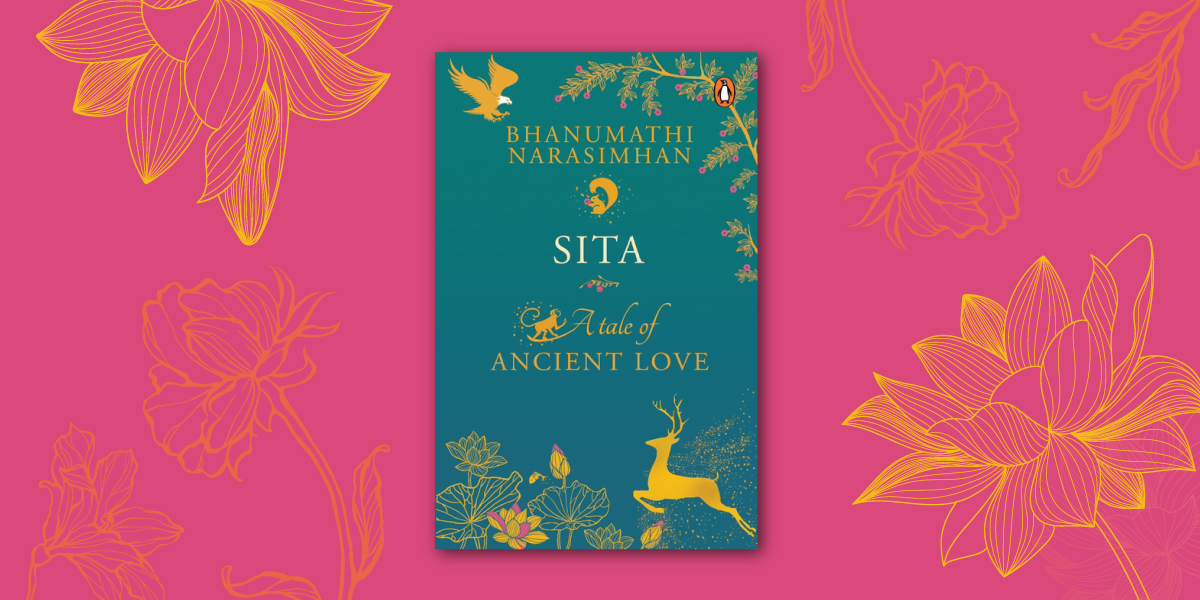
Sita, the beloved princess of Mithila, is one of the most revered women in Indian history; so well known, yet probably the least understood. At every crossroad of her life, she chose acceptance and grace over self-pity. Her life was filled with sacrifice yet wherever she was, there was abundance. It was as if she was carved out of an intense longing for Rama, yet she had infinite patience.

Sita’s story has something to offer to everyone. In her, we find someone who is so divine yet so human. Today, we are looking at some of the lessons from her life that can help us become better individuals.
Devotion
Sita’s devotion for Lord Rama was unparalleled. She stood by him like a pillar when he was banished from the kingdom of Ayodhya and followed him like his shadow to the forest, happily abandoning all comforts and luxuries of the palace.
‘Sita’s eyes closed and she dived deep within as the gentle touch of the petals enveloped her being in waves of beauty. And in that inner silence, the soundless vibration of the sacred word ‘Ram’ rose in soft ripples of bliss. A single tear flowed from Sita’s eyes, sweetened by her devotion and longing for her beloved.’
‘Sita’s eyes captured every detail but nothing left an impression on her mind, just as the lotus leaves, though they were in the water, remained untouched by it. There was only one impression in her consciousness, her beloved Rama, and he filled her completely.’
‘She wondered if Rama was looking at the night sky too. The very thought that they might both be gazing together at the same stars sent a rush of joy into her heart. There were many barriers that separated them physically, but these little twinkling relatives of hers connected her instantly to her beloved. She closed her eyes with a smile on her face. She mentally dwelt upon every detail of her beloved and found deep solace in the image.’
Courage
Sita was the beloved princess of Mithila who had been brought up with all the luxuries that a kingdom can afford. Yet, when Lord Rama was banished to the forest she followed suit, with no qualms or complains. It was not merely her love for Rama, but a sense of indomitable courage that allowed her to take such a valiant step.
‘She patiently waited for Rama to complete what he had to say. As soon as he was done, she fell at Kaushalya’s feet. ‘Mother, what use is the lotus without the sun, a flower without nectar, a river without banks or a body without the soul? I have heard in detail the descriptions of all the hardships that you foresee but I assure you that even a moment of separation from my lord is far worse than any of these difficulties. The birds and animals will be my family. The flowers of the wild will add colour and fragrance wherever we are. Sleeping on the earth, I will feel that I am resting on my mother’s lap. A hut of leaves in the company of my lord will be far more comfortable than the heavenly abode of gods. The majestic mountains all around will be akin to the palaces of Ayodhya.’
Grace
Be it the way Sita perceived Ravana after he abducted her or the way she treated Kaikeyi when the Queen visited her in Chitrakuta, Sita’s graciousness remained untarnished no matter what the circumstance.
‘For Sita, everything beautiful in creation was Rama. She felt the presence of her lord even in the music of the enemy. Ravana was not an opponent or adversary to Rama anymore. He had loomed large in Trijata’s mind when she placed him opposite Rama. But now Ravana seemed very small because she saw him from Sita’s point of view. Rama was bigger than any individual. There was nothing that could come between Sita and Rama because they were not two.’
‘Kaikeyi burst out when Rama came to her, ‘I thought I would never be able to speak to you again! Even if you forgave me, I would never be able to forgive myself. I was wondering what I would even say to you. But that darling wife of yours—she is just like you! She has patiently consoled me ever since our arrival and made me feel so honoured. She has no spite, not even a trace of doubt in her mind. She still treats me like her very own mother! I am sure Kaushalya and Sumitra must be wondering why Sita is spending all her time with me after all that I have done to you and to her!’’
Loyalty
The songs of Sita’s loyalty to Lord Rama are sung till date. When the mighty Ravana tried to win her over, her refusal of him remained as stern and unyielding as ever. Even in captivity, her heart and mind were solely devoted to the thought of Rama.
‘Though Sita was being held captive in Ravana’s garden now, they would bring her food in a golden plate every day. And every day, the plate would remain untouched. Sita never took even a sip of water from the palace kitchens. The Rakshasis who guarded her did not care. They would enjoy the food themselves and return the plates as if Sita had eaten everything.’
‘At first, Sita had thought of her new-found love as a beautiful feeling, a powerful emotion. But years later, as she sat watching the flowing waters of the stream in Ashoka Vatika, she was very clear that this love was her very existence.’
‘Trijata, wait!’ said Ravana. Trijata was his niece. He could speak to her a little more freely than he could to anyone else at the moment. He knew that Sita had softened towards Trijata. ‘Yes, my lord,’ said Trijata and retraced her steps into her uncle’s chamber. ‘Trijata, does she still yearn for that mortal husband of hers? Does she believe that he is actually going to find her?’ ‘Yes, my lord. Though separated physically, her heart knows no other. Whoever Rama may be, he is fortunate to have such a wife. I cannot imagine an ordinary man inspiring this kind of resilience and love.’
Living in harmony with nature
Sita’s love for all of nature’s beings was boundless. The various birds and animals in Ashoka Vatika became her companions in solitude. In turn, these creatures would bring her food and try to uplift her mood, considering themselves lucky to be in the presence of divinity.
‘When the Rakshasis were asleep, little squirrels would run down the trunk of the simsupa tree and drop nuts into her lap. They would wait to see if Sita accepted their offering or not. The sparrows and sunbirds would carry tiny berries in their beaks and place them on the ground near Sita, just as if they were bringing food for their young ones. Sita could not refuse their offerings. She would wash those berries and nuts in the water from the nearby stream and eat them. This was all the food that she consumed throughout her confinement in Ashoka Vatika.’
*
Rediscover the immortal story of Sita from her perspective in Bhanumathi Narasimhan’s Sita: A Tale of Ancient Love.









